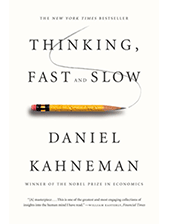
As you approach retirement, you may feel comfortable with how things are looking, both personally and financially. What you may not realise is the assumptions you’ve made about your nest egg – and the life you will live in retirement – could be based on damaging unconscious biases.
Like believing house prices will continue to rise at current levels, that your investments are sufficiently diversified or that superannuation rules won’t change.
Biases are part of what makes us human – they can even be useful shortcuts - but are inherently risky when it comes to your finances. This is where an experienced financial adviser can help you – by challenging your assumptions with an objective assessment of your current financial position, calculating what you will need to fund your retirement and developing a financial plan to get you there.
With research showing that those who receive financial advice are almost $100,000 better off when they retire 1 it’s clear that having a professional by your side can make a significant difference.
How financial advice can help
The main benefit of working closely with an experienced financial adviser is that they can review your retirement plans and financial situation objectively, without any emotion or biases.
Here are just some of the biases or assumptions that we make before retirement:
-
“I’ve saved enough to generate the income that I need in retirement”
We know that many pre-retirees tend to overestimate how much income they’ll be able to generate from their retirement savings, often quite significantly.They also overestimate how long their retirement savings will last, with research from Mercer showing that over 60 per cent of retirees will, on average, outlive their retirement savings by at least five years.
How a financial adviser can help:
The best insurance against insufficient retirement income is to receive financial advice earlier in life. That’s because the best friend of an astute investor is time in the market – provided your investments aren’t based on biased assumptions.
As the first step, an experienced financial adviser will take the time to understand what you want to do in retirement. Will you retire completely, or do you intend to continue working part-time? Does regular overseas travel feature in your retirement plans, or do you enjoy shorter trips in Australia? Are you looking to downsize your family home or help your children with their mortgages?
The answers to these sorts of questions will help an adviser determine how much money you will need during each stage of your retirement – initially your major expense may be overseas travel but later in life it is likely to be health care. These considerations will form the backbone of a financial plan that is tailored to your individual circumstances.
- “I prefer to only invest in Australian shares”
The investment portfolios and SMSFs of many pre-retirees are significantly comprised of Australian shares, with some having little or no exposure to bonds or international shares.
This lack of diversification means there is an increased risk of capital loss should there be a significant downturn, something that was felt by many close to retirement prior to the Global Financial Crisis.
Not only will a downturn significantly reduce the income generated from your retirement savings but your ability to rebuild these losses is also reduced.
How a financial adviser can help:
An experienced financial adviser can help you structure an investment portfolio with the right balance of growth and income, based on your age and tolerance to risk and your desired lifestyle in retirement.
When markets do experience some volatility, your financial adviser can help you to remain focused on the long-term financial goals that you have discussed given that some short-term volatility will be inevitable during your retirement.
- “I’ve always been healthy, why should retirement be any different?”
When people retire, it can be hard for them to imagine not being healthy, however, statistics show that there is a high chance of you having to deal with a health-related issue after you finish work.
Like retirement income, the cost of future medical care is another area that pre-retirees underestimate when thinking about their retirement.
And with private health insurance and Medicare only covering some of the costs, any unplanned out of pocket’ expenses can significantly deplete your retirement savings.
How a financial adviser can help:
A financial adviser can help you to prepare for any unexpected medical expenses by setting aside some savings to complement your private health cover and Medicare. They will also discuss insurance options with you – like Total and Permanent Disability – as options to relieve financial pressure on you or your family should you suffer an illness or injury.
Addressing this with your adviser early on will help you to enjoy your retirement, knowing that you can face whatever health issues come your way.
It’s never too early to get advice – nor too late
Engaging an experienced financial adviser, someone with whom you can maintain a close relationship throughout your life, can help you enjoy the retirement you’ve dreamed about.
One of the real benefits of financial advice is that it helps you to take a more holistic, ‘whole of life’ approach, to your retirement.
And as investment markets or interest rates go up and down and superannuation rules or your personal circumstances change, there’s nothing more reassuring than having the steady hand of a financial adviser to guide you.
Haven’t you worked too hard to put it all at risk now?

In the international best seller Thinking, Fast and Slow, Daniel Kahneman explores the way people think and how cognitive biases and intuition can get you into real trouble when making investment decisions. Kahneman offers practical tips on how you can safeguard against these biases in your decision making. A highly recommended read.
1. Financial Services Council, 'Better off with savings advice' research, February 2011.
